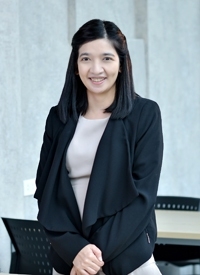Our lab uses patient-specific induced pluripotent stem cells as a disease modelling, molecular genetics, biochemical, and genome editing methodologies to understand molecular and cellular basis of the genetic disease. Ultimately, our lab aims to discovery a new drug targets and develop new treatment strategies for the disease.
Tel: 66 (0) 2441-9003 – 7 Ext. 1366
Email: alisa.tub mahidol.ac.th
mahidol.ac.th
Ph.D. (Biochemistry), Mahidol University, 2012
Academic Program(s)
Molecular and Integrative Biosciences
Systems Biosciences
Our lab studies the molecular and cellular of genetic diseases particular beta-thalassemia and the development of drugs or novel genome editing strategies for the disease.
1.Sii-Felice K, Negre O, Brendel C, Tubsuwan A, Morel AlHE, Filardo C, et al. Innovative Therapies for Hemoglobin Disorders. BioDrugs. 2020;34(5):625-47.
2.Wongkummool W, Maneepitasut W, Tong-Ngam P, Tangprasittipap A, Munkongdee T, Boonchuay C, et al. Establishment of MUi009 – A human induced pluripotent stem cells from a 32year old male with homozygous beta degrees -thalassemia coinherited with heterozygous alpha-thalassemia 2. Stem Cell Res. 2017;20:80-3.
3.Sangsri T, Saiprom N, Tubsuwan A, Monk P, Partridge LJ, Chantratita N. Tetraspanins are involved in Burkholderia pseudomallei-induced cell-to-cell fusion of phagocytic and non-phagocytic cells. Sci Rep. 2020;10(1):17972.
4.Abed S, Tubsuwan A, Chaichompoo P, Park IH, Pailleret A, Benyoucef A, et al. Transplantation of Macaca cynomolgus iPS-derived hematopoietic cells in NSG immunodeficient mice. Haematologica. 2015;100(10):e428-31.
5.Tubsuwan A, Pires C, Rasmussen MA, Schmid B, Nielsen JE, Hjermind LE, et al. Generation of induced pluripotent stem cells (iPSCs) from an Alzheimer’s disease patient carrying a L150P mutation in PSEN-1. Stem Cell Res. 2016;16(1):110-2.
![]()





